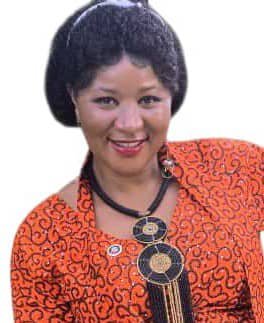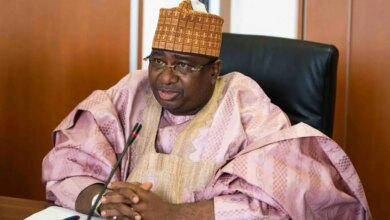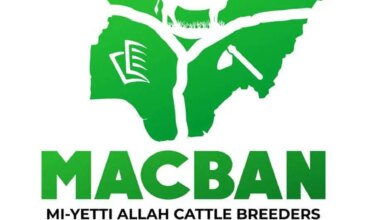Forensic accounting and auditing: Africa’s unique weapon against corruption and financial crime

FINANCIAL crimes are a silent pandemic that drains Africa of billions every year. It corrodes trust, erodes public resources, and undermines progress.
In many parts of Africa, loss through embezzlement, corruption, money laundering and financial mismanagement drains funds meant for hospitals, schools, infrastructure, and social welfare.
At the heart of the fight against these crimes stands a growing discipline: Financial Forensics, including Accounting and Auditing. More than a technical specialty, it is a form of social justice. It follows the trail of money — document by document, transaction by transaction — until the truth emerges. It brings transparency, justice, and reform.

What is financial forensics?
Financial forensics combines accounting concepts, auditing, investigative techniques, and legal frameworks to trace illicit funds, identify financial discrepancies and irregularities, provide evidential reports, assist litigation, and look for red flags that might signal fraud.
It goes beyond annual audits, which may overlook deliberate concealments; forensic financial experts, armed with their expertise in accounting principles, investigate deeper, addressing the accuracy and integrity of financial data, unearthing hidden patterns. They dig not only into what the numbers are, but how they were manipulated and by whom.
Dr. Stacy Ann Nwodo’s Follow the Money: A Forensic Accountant’s Handbook emphasizes tracing financial trails, spotting red flags, and using “forensic trace evidence, ranging from hair, fibers to soil particles and paint flecks, biological materials which can act as the missing piece and offer irrefutable proof in financial investigations” to expose fraud that conventional audits would miss.
According to Nwodo, one of the key strengths of this specialty is its capacity to probe complex financial schemes with carefully concealed tracks—layered contracts, insurance claims, procurement fraud, tax evasion, cyber-enabled scams, subtle asset shifts—and unravel them into clear evidence for courts or oversight commissions. To expose fraud, one must track the currency of deceit — the financial flows that reveal the hidden architecture of corruption.
Why Africa particularly needs this specialty
Across Africa, financial oversight is frequently undermined by weak internal controls, opaque procurement systems, insufficient audit follow-up, and corruption. The African Union estimates that nearly $150 billion is lost annually to corruption and fraud. These funds could be used in developmental and social welfare projects; instead, they vanish into dubious companies, offshore accounts, or the lavish lifestyle of a few.
Financial Forensics provides a mechanism to hold power accountable. By meticulously reconstructing financial evidence, layers of concealment are pieced together. This is critical in Africa where traditional audit systems often fail to detect fraud, especially when collusion is involved.
Just recently, research in Nigeria shows a strong positive impact of financial forensics on fraud prevention and detection within deposit money banks (Onyema, Ojo-Agbodu & Adebayo, 2024). Their study found that where forensic units are embedded in banking institutions, instances of misreporting, staff collusion, and fraudulent financial statements drop significantly. Auditing alone, without investigative depth, often lacks teeth when dealing with insider fraud or sophisticated concealment.
Similarly, in South Africa, forensic financial experts played a key role in exposing “state capture” scandals, following financial flows that connected business elites to government contracts. These investigations provided citizens with a forensic map of how corruption had seeped into governance, reinforcing the need for systemic reforms.
It is a multidisciplinary collaboration, working with legal experts, document examiners, trace evidence experts, law enforcement, and cyber forensic specialists — combining accounting with law and technology. It also provides preventive as well as corrective roles. While much focus is on uncovering past fraud, it also helps in risk assessment, internal control design, fraud risk management, and deterrence.
Obstacles across the continent
Yet, challenges remain. Many African countries lack sufficient numbers of trained experts. Legal frameworks are often outdated, making it difficult to prosecute complex financial crimes. Political resistance also hampers investigations, as those implicated in fraud are often the very individuals entrusted with reform.
Moreover, with the rise of digital finance, cryptocurrencies, and online transactions, fraud schemes are becoming more sophisticated. This calls for specialised forensic tools and cross-border collaboration.
Pathways to promote forensic specialty
For Africa to overcome the scourge of fraud, forensic accounting and auditing must be institutionalized at every level. Universities should expand training programmes to produce skilled forensic accountants. Governments must strengthen anti-fraud laws and ensure independence for investigative agencies.
Regional cooperation is essential to tackle cross-border money laundering and illicit flows. Technology adoption with the use of data analytics, artificial intelligence, blockchain tracing, and financial intelligence systems is necessary to detect suspicious patterns.
Just as importantly, a culture of accountability must be nurtured. Financial forensics cannot succeed in a vacuum; it thrives where citizens demand transparency, whistleblowers are protected, and institutions are independent.
Conclusion: A specialty worth cultivating
The African proverb says, “The one who hides the drumbeat of deceit cannot silence the dance of truth.” Forensic accounting and auditing represent that dance of truth. It is more than accounting; it is justice in financial form. It helps ensure that public funds do what they ought: serve citizens fairly, not be diverted into private interests.
As Dr. Nwodo stresses, the difference between seeing fraud and finding fraud is often seeing the hidden traces in financial evidence, then following them with persistence, skill, and legal clarity. Africa’s development hinges not just on resources, but on how those resources are managed.
The writers are forensic experts.
🔗 Follow Ghanaian Times WhatsApp Channel today. https://whatsapp.com/channel/0029VbAjG7g3gvWajUAEX12Q
🌍 Trusted News. Real Stories. Anytime, Anywhere.
✅ Join our WhatsApp Channel now! https://whatsapp.com/channel/0029VbAjG7g3gvWajUAEX12Q






